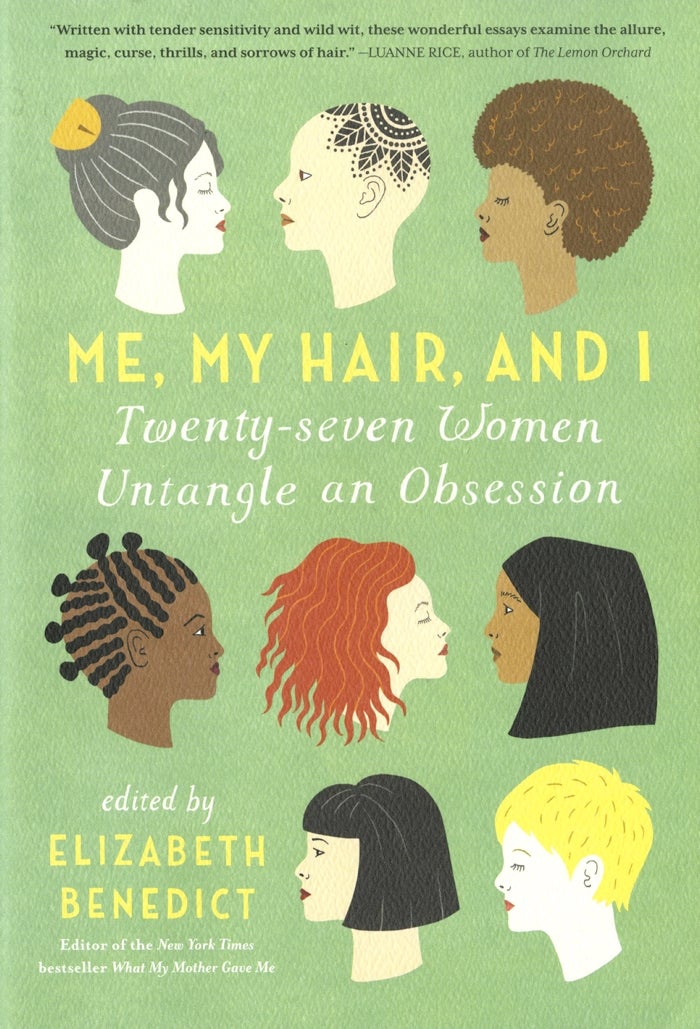Our crowning glory, our identity, our hair
Published 12:01 am Sunday, November 15, 2015
“Me, My Hair, and I: Twenty-seven Women Untangle an Obsession,” edited by Elizabeth Benedict. Algonquin Paperbacks. 2015. 313 pp. $16.95.
By Deirdre Parker Smith
deirdre.smith@salisburypost.com
Why are we so obsessed with our hair? Has it become genetic, since a woman’s hair has held some sort of ritual, spiritual, sexual, societal significance since history began?
Well, “Me, My Hair, and I” doesn’t answer those questions, but it contains poignant and funny stories about women’s relationships with their hair.
Editor Elizabeth Benedict writes in her introduction: “We get that hair is serious. It’s our glory, our nemesis, our history, our sexuality, our religion, our vanity, our joy, and our mortality.” She continues. “there are many things in life that matter more than hair,” but in many cases, it defines us, whether we want it to or not.
This collection is particularly revealing if you are a person who has never known women of different ethnic backgrounds.
Suleika Jaouad, with a Swiss mother and Tunisian father, is different when all she wants to do is fit in. As a young woman, she has a rare cancer, and her hair falls out, eyebrows, eyelashes and all. When it starts to return, she learns she will need a bone marrow transplant and will lose her hair again.
Going for a buzz cut will make the loss less traumatic, she decides, but a caring and creative barber suggest a hair tattoo, shaving a design into her half-inch long hair.
“ ‘What the hell,’ I said. After all, I had little left to lose. My new style made me look like I was tough, even when I didn’t always feel that way. I was adding armor, and I liked the way it fit.”
Author Anne Lamott, who is white, revels in her dreadlocks, a solution to an all-too-frequent question, “Did you stick your finger in a light socket?”
In contrast, Marita Golden writes about the continuing controversy over what she calls Black hair. She says the gols for many black women is to have straight hair to fit in better, while others defiantly sport cornrows, Afros and weaves.
Golden believes in and wears natural hair, for which she has received criticism. She was once invited to talk to a group of high school students who’d formed a support group for people wearing their hair in a natural state.
“Black women never really win the hair wars. We keep getting hit by incoming fire from all sides. Today our hair is as much of a conundrum as ever. While Black women spend more on their hair than anyone else, they are routinely less satisfied with the results.”
Golden is now happily going gray.
Bahrati Mukherjee grew up in a traditional Hindu Bengali culture, where a woman’s hair was expected to be glossy, black, thick and long. Hers was thin and just brown, a sign that someone in her ancestry might have mated with a white-skinned foreigner.
Mukherjee’s mother spent hours with her fingers in her child’s hair, applying this exotic oil and that, all guaranteed to make hair fuller, thicker, darker. Now living in New York and San Francisco, she finds her hair disappearing with treatments for rheumatoid arthritis.
Her friend Amy Tan buys her a human hair wig that is silky, long and lustrous.
The familiar story of a mother who insists her girls have their hair cut short will strike a chord for daughters in large families. Mama just didn’t have time to take care of long hair.
So many of the stories reveal intensely personal details. For example, one woman who has forgiven her abusive father with this threat to nail her to the wall by her hair.
More than one story is about surviving cancer. One perfectly describes how the hair comes back curly, then morphs into different stages of curl as it grows.
All the women writing these stories are accomplished, successful people. Many, if not most, live in New York or another large city where they have access to expensive, trendy, popular hair designers — not stylists or beauticians.
So, one of the most refreshing essays is by Jane Smiley, a very successful author, who happens into a salon and discovers with a new cut and an unnamable color, she is beautiful, for a while.
But she stresses beauty is not something to seek every day. Beauty is a treat, a surprise, if you will. Keep expectations low, so the simplest thing can have the most impact.
“Beauty is fleeting when we try to capture or possess it, even when we declare that we have located it in a particular loved one, but it is constant and unchanging when we only watch it come and go, like time itself.”



